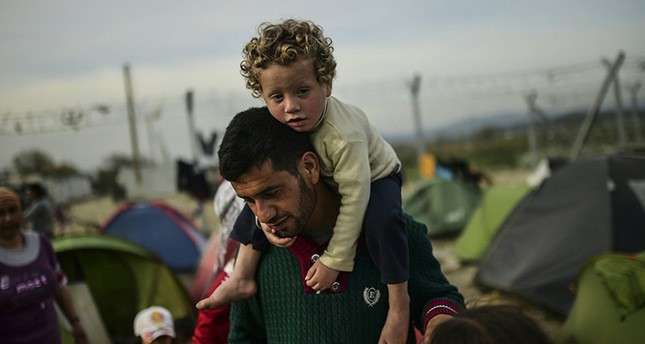The EU has recommended that member states return asylum seekers to Greece as of March next year, despite the poor conditions and overcrowding of its refugee facilities.
It has said that doing so would amount an important step towards addressing the Eurozone’s migration policies and the passport-free Schengen zone, which nearly collapsed under the magnitude of the 2015 migrant crisis.
But rights group Amnesty International has condemned Brussels’ latest directive, saying it was “outrageously hypocritical” to put pressure on Greece when it had already taken in the lion’s share of the more than one million migrants to have inundated the European Union.
Nonetheless, at a press conference Thursday, EU Migration Commissioner Dimitris Avramopoulos told reporters : “We are recommending the gradual resumption of Dublin transfers of asylum seekers starting next year from March 15,” and added that Athens has made “significant progress” in improving conditions for asylum seekers in line with 2011 court rulings, which had suspended further transfers due to “degrading” conditions prevailing in Greece at the time.
Avramopoulos insisted the return of migrants would involve a “very small number of people,” and only affect people who change countries from Greece after March 15, excluding unaccompanied minors and other vulnerable groups.
According to the EU’s Dublin asylum rules, the country where a migrant first lands must process their asylum request and must also take them back should they travel to other countries in the 28-nation-strong European Union bloc.
Both Greece and Italy have been the first entry point for the majority of the migrants who have entered the EU since last year when they fled war and poverty in the Middle East and Africa.
Amnesty International’s Iverna McGowan criticized the commission for implying that Greece alone is to blame for the poor conditions prevailing in the crisis-stricken country.
“It seems that for the European Commission all roads for refugees lead to Greece,” said McGowan. “It is outrageously hypocritical of the European Commission to insinuate that Greece alone is to blame for dire conditions when the overcrowding and insecure climate on the Greek islands are for the most part caused by the EU-Turkey deal,” she said, citing “a lack of solidarity from other EU countries to relocate people.”
She also said that the conditions in the refugee centers — including overcrowding, freezing temperatures and violence — were compounded by a “lack of solidarity from other EU countries to relocate people.”
Source: AFP





































